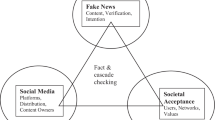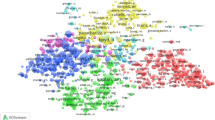Abstract
Due to the lack of a standard definition for the concept of corporate social responsibility (CSR), various discourse communities have assigned different meanings to it. Based on the intermedia agenda setting theory, this study examines the extent to which CSR-related news releases published by the two electricity providers in Hong Kong have influenced press coverage over a 6-year period between 2006 and 2011. A total of 202 news releases and 1,045 news articles were content-analyzed based on the following mutually exclusive categories of CSR-related news events: operations, education, community, products and services, recognition, environment, and donations and sponsorships. This study found that operations-related and products and services-related news releases were more likely to be reported in the press. Recognition-related news releases were the least likely to be reported. Based on the findings, this study posits that two criteria would determine whether a CSR-related news release is likely to be covered in the press: the extent to which the news events are relevant to the core operations of the corporations and the extent to which the news events make an impact on society.

Similar content being viewed by others
References
Akpabio, E. (2005). Towards a public relations agenda setting theory. Journal of Social Science, 11(3), 173–176.
Applegate, E. (2005). Mistakes made in companies’ press releases (how to improve your company’s press releases). Public Relations Quarterly, 4, 25–30.
Arvidsson, S. (2010). Communication of corporate social responsibility: a study of the views of management teams in large companies. Journal of Business Ethics, 96, 339–354.
Bartlett, J. L., & Devin, B. (2011). Management, communication and corporate social responsibility. In O. Ihlen, J. Bartlett, & S. May (Eds.), The handbook of communication and corporate social responsibility (pp. 47–66). West Sussex: Wiley-Blackwell.
Burchell, J., & Cook, J. (2006). Confronting the “corporate citizen”: shaping the discourse of corporate social responsibility. International Journal of Sociology and Social Policy, 26(3/4), 121–137.
Capriotti, P. (2011). Communicating corporate social responsibility through the internet and social media. In O. Ihlen, J. Bartlett, & S. May (Eds.), The handbook of communication and corporate social responsibility (pp. 358–378). West Sussex: Wiley-Blackwell.
Carroll, C. E. (2011). Media relations and corporate social responsibility. In O. Ihlen, J. Bartlett, & S. May (Eds.), The handbook of communication and corporate social responsibility (pp. 423–444). West Sussex: Wiley-Blackwell.
Chan, J. C., & Welford, R. (2005). Assessing corporate environmental risk in china: an evaluation of reporting activities of Hong Kong listed enterprises. Corporate Social Responsibility and Environmental Management, 12, 88–104.
Christensen, L. T. (2007). The discourse of corporate social responsibility: postmodern remarks. In S. May, G. Cheney, & J. Roper (Eds.), The debate over corporate social responsibility (pp. 448–458). New York: Oxford University Press.
Curtin, P. A. (1999). Reevaluating public relations information subsidies: market-driven journalism and agenda-building theory and practice. Journal of Public Relations Research, 11(1), 53–90.
Dempsey, S. E. (2011). NGOs as communicative actors within corporate social responsibility efforts. In O. Ihlen, S. May, & J. Bartlett (Eds.), Handbook of communication and corporate social responsibility (pp. 445–466). Oxford, U.K.: Wiley-Blackwell.
DiStaso, M. W. (2007). Corporate inter-media agenda setting power: impression management use of pro forma earnings and tone [unpublished doctoral dissertation]. Florida: University of Miami. Retrieved from http://sunzi.lib.hku.hk/ER/detail/hkul/4738587
Freeland, C. (2010). What’s BP’s social responsibility? The Washington post. Retrieved from http://www.washingtonpost.com/wp-dyn/content/article/2010/07/16/AR2010071604070.html.
Gilpin, D. R. (2007). Narrating the organizational self: reframing the role of the news release. Public Relations Review, 34, 9–18.
Harris, P., Kolovos, I., & Lock, A. (2001). Who sets the agenda? An analysis of agenda setting and press coverage in the 1999 Greek European elections. European Journal of Marketing, 35(9/10), 1117–1135.
Ihlen, Ø. (2008). Mapping the environment for corporate social responsibility: stakeholders, publics and the public sphere. Corporate Communications: An International Journal, 13(3), 135–146.
Ihlen, Ø., Bartlett, J. L., & May, S. (2011). Corporate social responsibility and communication. In O. Ihlen, J. Bartlett, & S. May (Eds.), The handbook of communication and corporate social responsibility (pp. 3–22). West Sussex: Wiley-Blackwell.
Kiousis, S., Mitrook, M., Wu, X., & Seltzer, T. (2006). First- and second-level agenda-building and agenda-setting effects: exploring the linkages among candidate news releases, media coverage, and public opinion during the 2002 Florida gubernatorial election. Journal of Public Relations Research, 18(3), 265–285.
Lessen, G. (2007). Foreword. In S. May, G. Cheney, & J. Roper (Eds.), The debate over corporate social responsibility (pp. v–vi). New York: Oxford University Press.
MacKuen, M. B., & Coombs, S. L. (1981). More than news: media power in public affairs. Beverly Hills: Sage.
Maignan, I., & Ralston, D. A. (2002). Corporate social responsibility in Europe and the U.S.: insights from businesses’ self-presentations. Journal of International Business Studies, 33(3), 497–514.
McCombs, M. (2005). A look at agenda-setting: past, present and future. Journalism Studies, 6(4), 543–555.
McCombs, M., & Shaw, D. (1972). The agenda-setting function of mass media. Public Opinion Quarterly, 36, 1766–1787.
McMillan, J. (2007). Why corporate social responsibility: why now? How? In S. May, G. Cheney, & J. Roper (Eds.), The debate over corporate social responsibility (pp. 15–29). New York: Oxford University Press.
Oxfam Hong Kong (2010). Corporate social responsibility survey of Hang Seng index constituent companies 2009 [Report]. Retrieved from http://www.csr-asia.com/download/HS%20index_eng.pdf
Podnar, K. (2008). Guest editorial: communicating corporate social responsibility. Journal of Marketing Communications, 14(2), 75–81.
Smith, N. C., Palazzo, G., & Bhattacharya, C. B. (2010). Marketing’s consequence: stakeholder marketing and supply chain corporate social responsibility issues. Business Ethics Quarterly, 20(4), 617–641.
Strauss, A. L. (1987). Qualitative analysis for social scientists. Cambridge: Cambridge University Press.
Sweetser, K. D., & Brown, C. W. (2008). Information subsidies and agenda-building during the Israeli-Lebanon crisis. Public Relations Review, 34, 359–366.
Vliegenthart, R., & Walgrave, S. (2008). The contingency of intermedia agenda setting: a longitudinal study in Belgium. Journalism and Mass Communication Quarterly, 85(4), 860–877.
Waddock, S. (2007). Corporate citizenship: the dark-side paradoxes of success. In S. May, G. Cheney, & J. Roper (Eds.), The debate over corporate social responsibility (pp. 74–86). New York: Oxford University Press.
Weaver, D. H. (2007). Thoughts on agenda setting, framing, and priming. Journal of Communication, 57, 142–147.
Wehmeier, S., & Schultz, F. (2011). Communication and corporate social responsibility. In O. Ihlen, J. Bartlett, & S. May (Eds.), The handbook of communication and corporate social responsibility (pp. 467–488). West Sussex: Wiley-Blackwell.
Windell, K. (2007). The commercialization of CSR: Consultants selling responsibility. In F. D. Hond, F. G. A. de Bakker, & P. Neergaard (Eds.), Corporate social responsibility in action: Talking, doing and measuring (pp. 48–66). Abingdon: Ashgate Publishing Group.
Author information
Authors and Affiliations
Corresponding author
Rights and permissions
About this article
Cite this article
Tam, L. News about corporate social responsibility (CSR): the interplay of intermedia agenda setting influences between corporate news releases and press coverage. Asian J Bus Ethics 4, 117–130 (2015). https://doi.org/10.1007/s13520-015-0046-y
Received:
Accepted:
Published:
Issue Date:
DOI: https://doi.org/10.1007/s13520-015-0046-y




